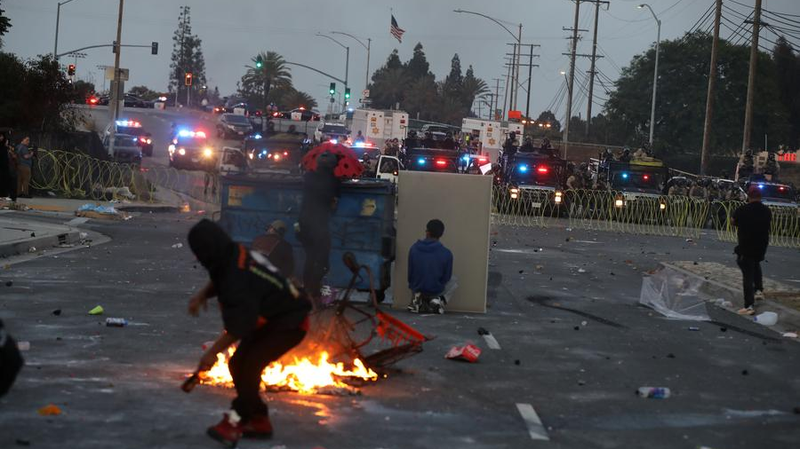When a viral meme shows multiple Spider-Man characters pointing fingers, it's funny—until real leaders do the same. That's the scene unfolding in Los Angeles as protests over immigration policy spark accusations, confusion and a show of force rather than solutions.
Despite images of rocks, Molotov cocktails and masked demonstrators hammering at a federal building, 99 percent of L.A. moved on with brunches, beach walks and yoga, as columnist Anita Chabria noted. Yet the Trump administration sent the National Guard without a formal request from California leaders, triggering a political tug-of-war that spans coasts.
On the West Coast, state and local officials insist the federal response is overblown. On the East Coast, Washington warns that California's leaders haven't done enough to curb unrest. In the middle? A city whose last major riots in 1992, following the Rodney King verdict, saw widespread looting and arson only quelled after state and local officials asked the White House for federal troops.
The result is finger-pointing from the White House and Sacramento, with each side casting the other as either national savior or incompetent adversary. Meanwhile, Los Angeles residents face everyday challenges, from safe streets to fair immigration policies.
This standoff highlights a deeper issue: America's fractured system for handling immigration. Rather than debates on federal vs. state power, many experts argue the U.S. needs a comprehensive overhaul—one that balances border security, humanitarian concerns and economic needs. For investors, entrepreneurs and travelers, the question is clear: can the world's leading economy sort out its own framework for immigration before the next protest cycle begins?
Los Angeles, a global hub of culture and commerce, can't afford to be paralyzed by partisan blame games. As young leaders and changemakers watch from Tokyo to Paris, from Berlin to New Delhi, the message is simple: solving systemic challenges requires more than rhetoric. It demands clear leadership, data-driven policy and cross-sector collaboration—qualities that will define success in the 21st century.
Reference(s):
'Riots' in Los Angeles demonstrate one of U.S.'s political problems
cgtn.com




